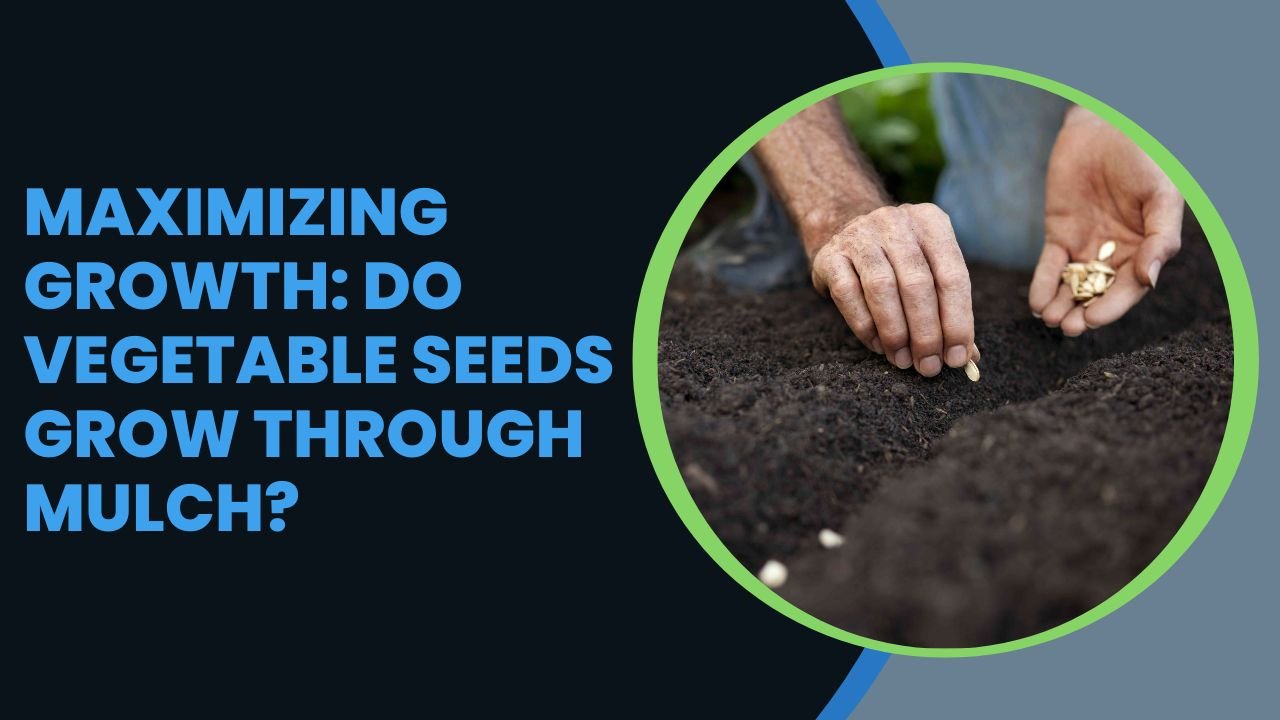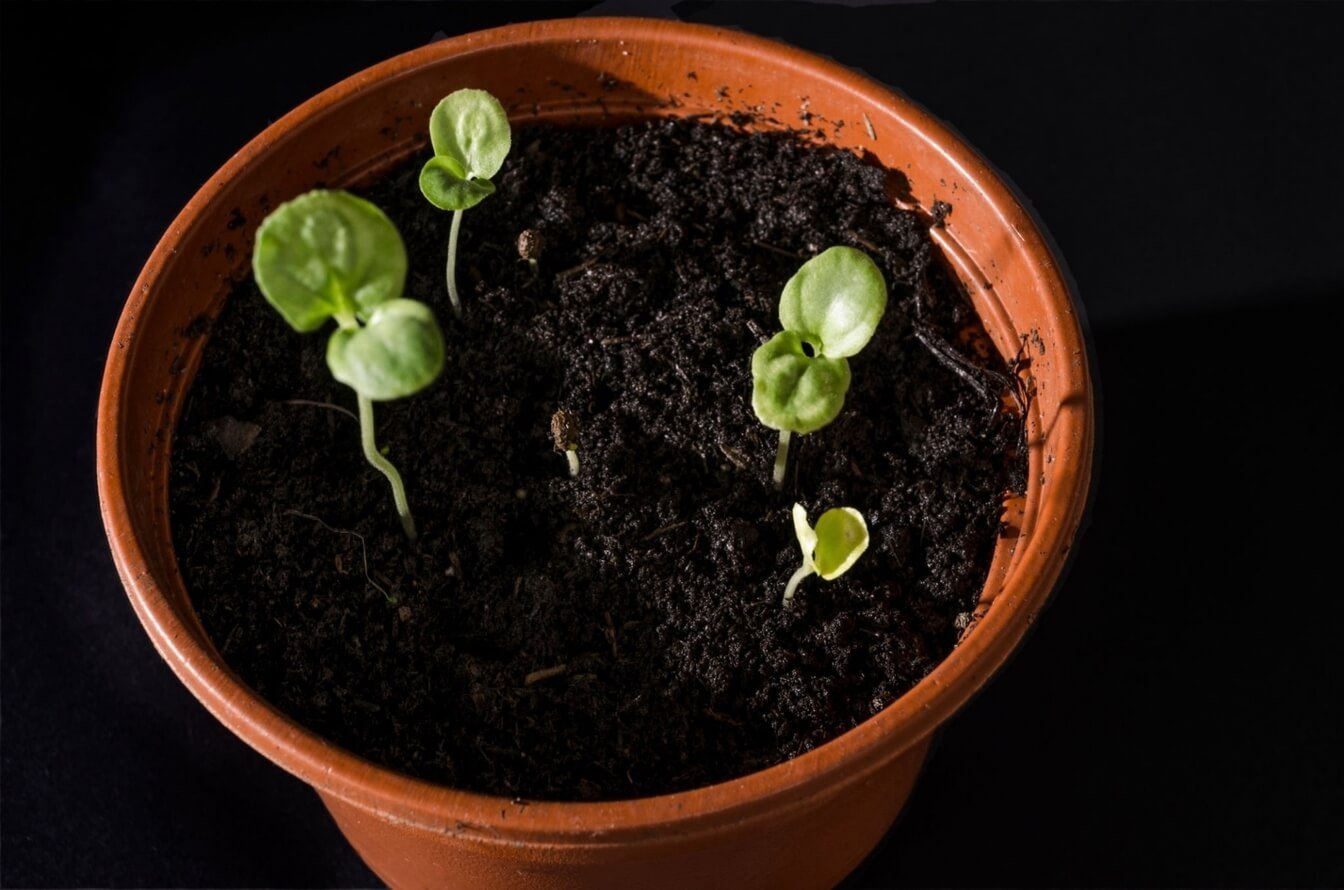
When it comes to gardening, maximizing growth and ensuring healthy plant development are key goals for every gardener.
One common practice that gardeners employ is mulching, which involves covering the soil surface with a layer of organic or inorganic material.
Mulch offers various benefits, such as conserving moisture, suppressing weed growth, and maintaining soil temperature.
However, if you’re using mulch in your garden, you might wonder whether vegetable seeds can successfully grow through it.
In this article, we will explore the relationship between mulch and seed growth, along with some tips to maximize growth in your garden.
What is mulch?
Before diving into the impact of mulch on seed growth, let’s define what mulch actually is. Mulch refers to any material, such as straw, wood chips, leaves, or even plastic, that is applied to the soil surface around plants. It acts as a protective layer, providing several benefits to the plants and the soil.
Read Also: The Ultimate Guide to Vegetable Seeds for Container Gardening
Importance of mulching in gardening
Mulching plays a crucial role in maintaining a healthy garden. By applying mulch, you create a barrier between the soil and the external environment.
This barrier helps in retaining moisture by reducing evaporation, especially during hot and dry periods. Additionally, mulch acts as an insulator, preventing extreme temperature fluctuations in the soil, which can be harmful to plant roots.
Moreover, mulch suppresses the growth of weeds by blocking their access to sunlight, reducing the competition for nutrients and water.
Factors affecting seed growth
Several factors influence seed growth, including soil temperature, moisture levels, and access to sunlight. Seeds require specific conditions to germinate and establish healthy roots. While some seeds require direct contact with the soil to grow, others can still thrive even if they are partially covered.
Read Also: Fast-Growing Delights: Discovering Quick-Growing Vegetable Seeds
Can vegetable seeds grow through mulch?

Yes, vegetable seeds can grow through mulch, but it depends on the type of mulch used and the specific needs of the seeds. Some mulch materials, like straw or wood chips, are loose and allow seeds to penetrate and establish themselves in the soil.
However, if you’re using plastic mulch or a thick layer of organic mulch, such as leaves, it may hinder the seeds’ ability to grow through it. In such cases, it’s important to make small holes or remove the mulch in the seed’s immediate vicinity to ensure successful germination.
Pros and cons of mulching seeds
Mulching seeds has its advantages and disadvantages. On the positive side, mulch helps retain moisture, reduces weed growth, and maintains a more stable soil temperature, which can enhance seed germination and growth.
However, if the mulch layer is too thick or dense, it may create a barrier that restricts the seedlings’ emergence or affects their access to sunlight. It’s essential to find the right balance and choose appropriate mulch materials to optimize seed growth.
Read Also: Discover the Beauty of Heirloom Seeds for Container Gardening
Tips for maximizing growth with mulch
To maximize growth and overcome any potential challenges associated with mulching seeds, consider the following tips:
- Choose the right mulch: Select a mulch material that is suitable for the specific needs of your vegetable seeds. Loose and organic mulches, such as straw or wood chips, are generally more favorable for seed growth.
- Prepare the soil properly: Ensure that the soil is adequately prepared before applying mulch. Clear any weeds or debris and create a suitable environment for seed germination.
- Make space for seedlings: If you’re using a thick layer of mulch, create small holes or remove the mulch directly around the seeds to provide them with space to emerge.
- Monitor moisture levels: Check the moisture levels regularly and water the plants as needed. Mulch helps retain moisture, but it’s essential to ensure that the soil doesn’t become excessively dry or waterlogged.
- Adjust mulch thickness: Maintain an appropriate thickness of mulch. Too much mulch can hinder seedling emergence, while too little mulch may not provide sufficient moisture retention and weed suppression.
- Mulch after germination: If you’re concerned about seed germination, consider mulching the garden beds after the seeds have sprouted and developed their first set of true leaves.
- Read Also: Organic Seeds for Hydroponic Gardening: A Green Thumb’s Choice
- Read Also: Burpee Organic Seeds: Your Go-To for Successful Gardening
- Read Also: Planting Organic Herb Seeds: Enhancing Flavor and Health in Your Garden
- Read Also: Will Heirloom Seeds Reproduce? Unraveling the Mystery of Seed Saving
- Read Also: Exploring Cross-Pollination: The Journey of Heirloom Seeds
Conclusion
Mulching is a valuable technique in gardening that offers numerous benefits. While vegetable seeds can grow through mulch, it’s important to choose the right type of mulch and consider the specific requirements of the seeds. By following the tips mentioned in this article, you can maximize growth and ensure healthy seedling development in your garden. Remember, finding the right balance with mulch thickness and monitoring moisture levels are key to achieving successful results.
FAQs
Is mulch necessary for vegetable seed growth?
Mulch is not absolutely necessary, but it can significantly benefit vegetable seed growth by conserving moisture, suppressing weeds, and maintaining soil temperature.
Can I use any type of mulch for vegetable seeds?
It’s best to choose mulch materials that are loose and allow seeds to penetrate easily. Straw and wood chips are commonly used mulches for vegetable gardens.
How thick should the mulch layer be for seeds?
The mulch layer should be thin enough to allow seedlings to emerge but thick enough to retain moisture. Generally, a layer of around 1-2 inches is sufficient.
Can I mulch my vegetable garden before planting seeds?
It’s generally recommended to mulch after the seeds have germinated and developed their first set of true leaves. This allows for easier emergence of the seedlings.
How often should I water the garden when using mulch?
The frequency of watering depends on various factors, including weather conditions and the moisture retention capacity of the mulch. Monitor the moisture levels regularly and water as needed.
